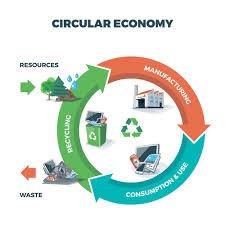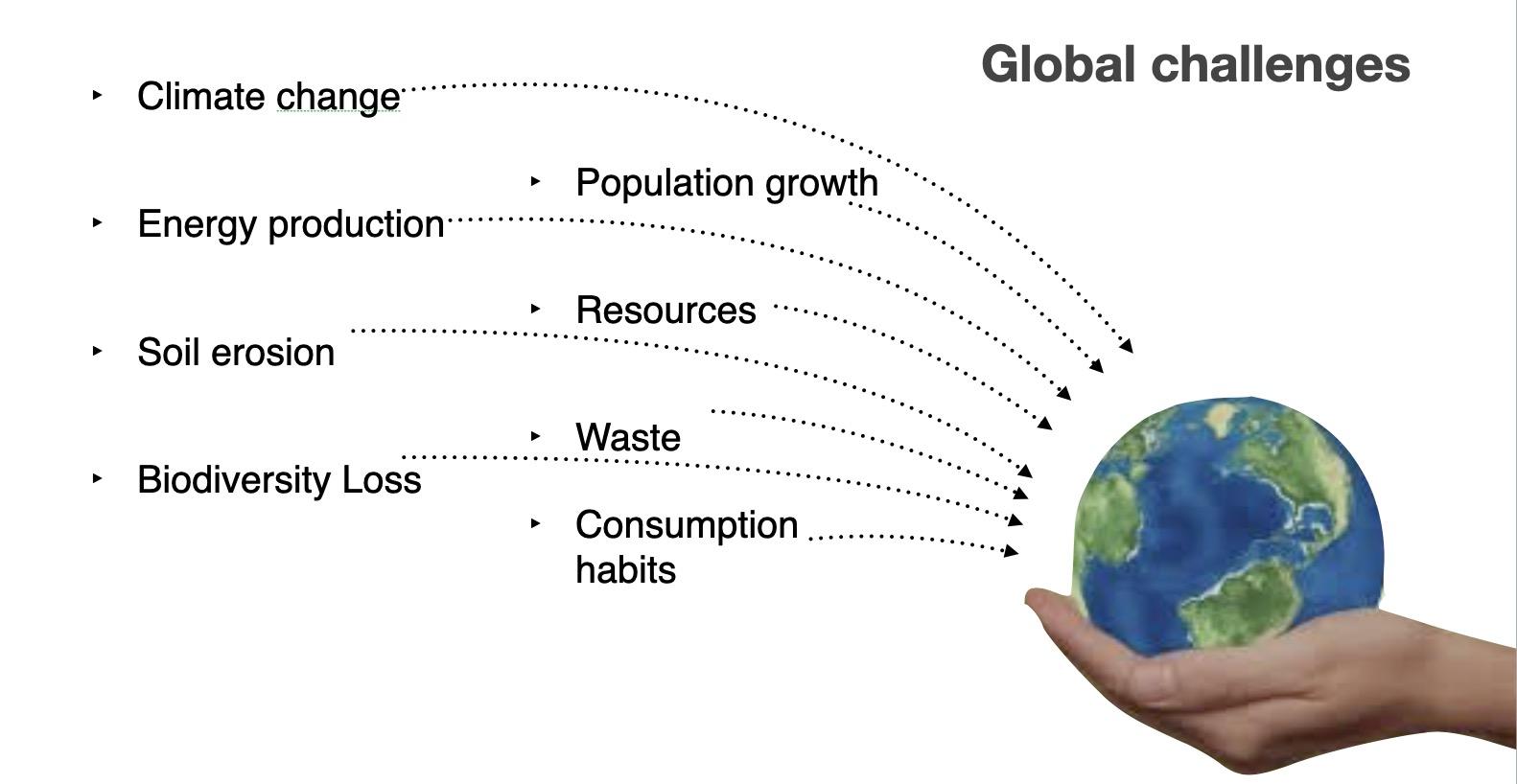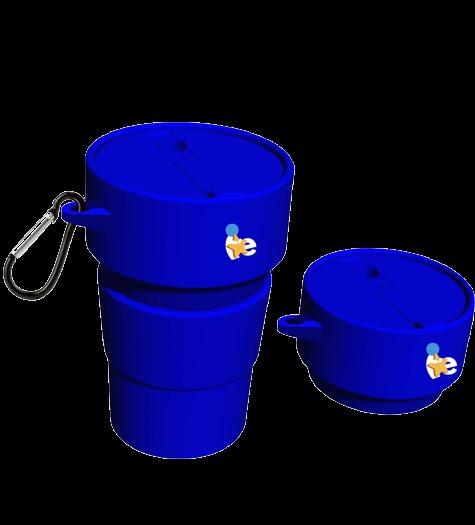Social Footprint
SUSTAINABILITY DOMAINS
“human ability to perpetuate within the natural cycles
Triple crisis · Economical
· Social à Poor have a lack of opportunities in comparison to the rich
Environmental
Economical CRISIS:
69 OF THE MAIN ECONOMIES OF THE WORLD ARE COMPANIES AND 31 ARE COUNTRIES
New emerging economies that take on a sustainable approach:




These are the types of systems and economies that we should be prioritising. We need to redesign everything under these systems instead of our traditional linear economy that produces waste and


Donut Economy
We must aim for the donut economy: economic model balancing human needs with the limitations of the planet's resources, emphasizing sustainability and equity, and represented by a donut-shaped diagram that aims to stay within the "safe and just space for humanity" created by the social foundation of human needs and the planetary boundaries of our ecological limits.

The collaborative economy is defined as a business practices and models based on horizontal networks and the participation of a community.
It is built on "power and trust distributed within communities rather than centralized institutions" (R. Botsman), erasing the boundaries between the producer and the consumer. E.g FabLabs, coworking, IoT, …
3 types of sharing:
1. Because sharing benefits us all
Carpooling: BLAHBLAH CAR
Rental: SOCIAL CAR P2P parking....
2. Because I don ´t need it anymore
CRECICLANDO
SEGUNDA MANO
WALLAPOP (geolocalización)
NOLOTIRO.ORG
Ways to reduce our unnecessary overconsumption of resources
3. Because collaboration works
COUCHSURFING
ETSY
EATWITH
HUERTOS COMPARTIDOS
BANCOS DE TIEMPO
Moving from linear economy to circular economy

Examples of sustainable systems being used today:
• Industrial ecology
• Eco innovation
• Circular economy (restorative by design)
• Circular design
•
Cradle to cradle sectors:


• C2C buildings
• C2C textiles
• C2C consumer goods & cosmetics
• C2C packaging
• C2C Paper & Printing
E.g Works in the garment industry. Analyzes products to make sure they are not using any toxic materials
Cradle to Cradle in Consumer Goods industry



PUMA Bring Me Back-System

Biodegradable + Recyclable InCycle Product Label






Ethical banks


Crowdfunding Types:
1. Based on loans
ZOPA, LENDING CLUB, ECROWD, CROWD2B

2. Based on participations
3. Based on donations
4. Based on rewards
THE CROWD ANGEL, SOCIAL INVERSOR
HAZLOPOSIBLE, BBVASUMA
KIKSTARTER , GOTEO,INDIEGOGO,LANZANOS,VERKAMI,Windertrale

Dutch +1M€

Why Bla Bla Car?
3 technologies used in one design: Cars-Internet Social Networks
Cars: 95% in parking/ not used so it makes no sense for everybody to own their own car. Instead it makes sense to share car rides and carpool, to reduce each individuals carbon footprint

“more people, less cars"
Social crisis:
The social crisis led to making of Millennium Development goals and then later on to the 17 SDGs. Social crisis includes:



• Displacements
• Famine and obesity
• Child soldiers
• Extreme poverty
• Social exclusion
The SDG’s
193 countries, 169 targets, 231 indicators
The 2030 agenda incorporates the private business sector, not only as a financier but as another partner, called upon to contribute to the agenda and the achievement of its objectives
Focuses on the 3 parts of the crisis:

Assignment N°5
Looking at the Sustainable Development Goals
By TESOBESDG 1: No Poverty
1.7 Billion + people are excluded from the benefits & entitlements provided by access to a bank account.
● The Open Bank Project is an open source API company connecting banks with active communities of developers and partners for innovation.

They believe that money is a social fiction that

SDG 3: Good Health and Well-being
● Social impact business who aims to empower low-to-middle-income countries the freedom of mobility through prosthetic technologies.

● Started as an industrial design project to create affordable prosthetic leg system from recycled plastic is developing into a project with an increasing social and ecological impact
● Even though they use high-quality, affordable components, they continue to devise new innovative mechanisms to

IE Rewards + Star Cup System (Curriculum Project)


IE Rewards is an app that aims to promote the disuse of single use coffee cups. It is compatible with any reusable cup, allowing users to earn points for buying hot beverages in the cups they brought from home or our Star Cup. These star points can be collected to receive rewards such as free coffees and discounts on snacks. Our Star Cup is a leak safe cup made from food grade silicone. Food grade silicone is an extremely durable,100% recyclable, high quality and resilient material. It is compressible, allowing for the retractable aspect, and doesn’t affect the taste of the beverages. They are also very light, and contain no BPA, latex, lead or other harmful components for human health or for environmental concerns.

